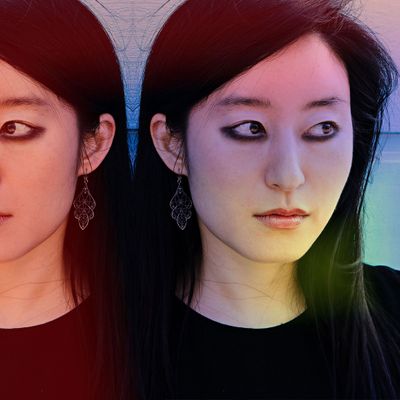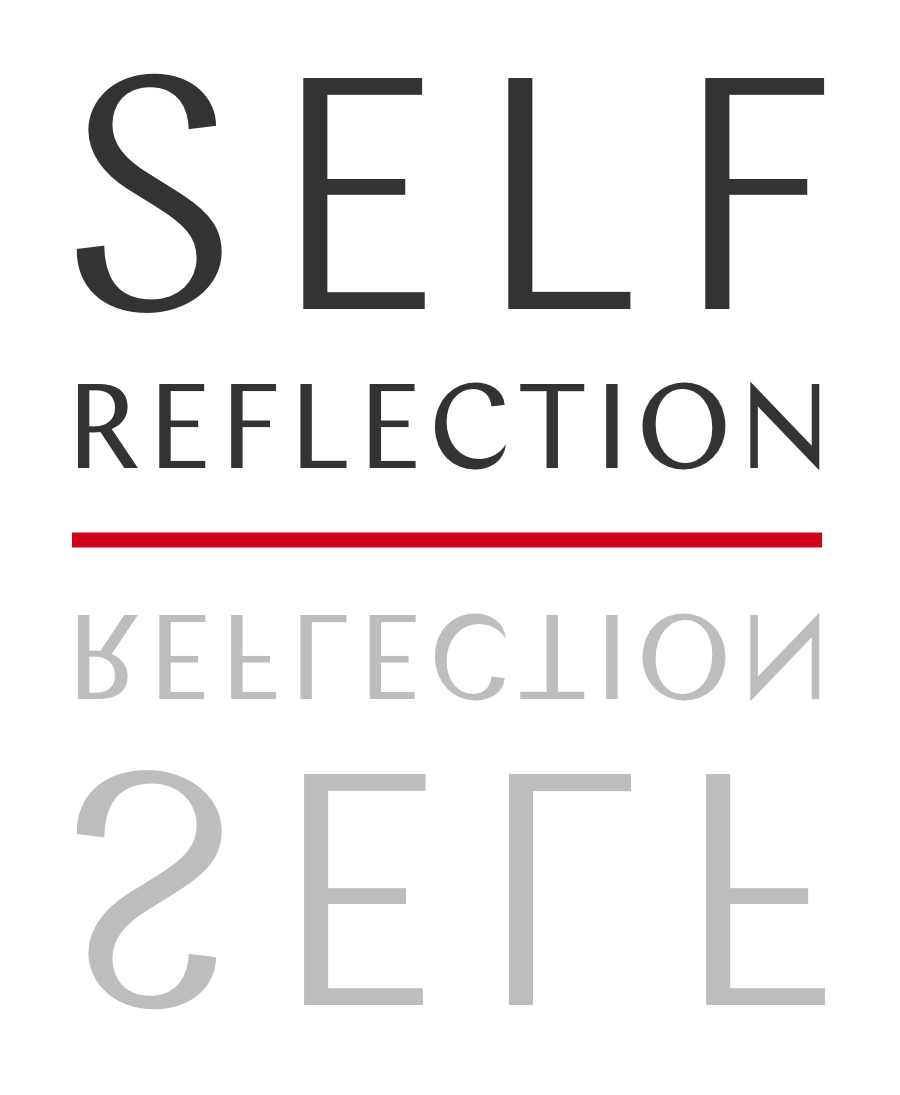
Self/Reflection is a week of stories on the Cut about how we feel, versus how we look.
A little over a couple of years ago, I started wearing a lot more black eye makeup. I apply a dab of primer, then several swipes of black eye shadow along the centimeter of skin beneath the lash line — just a centimeter, but it’s enough to be a choice, a quirk people notice, comment upon. Until then, I hadn’t used much makeup: a bit of eyeliner, at most. Tinted lip balm.
Lately, I’ve layered on still more of this eye shadow, intensifying the effect. One friend tells me the dashes of black make me look like an especially fierce superhero; another says he thought for a moment that I’d been punched in the face; a third, to my delight, says he’s put in mind of a Blade Runner replicant. Most, though, ask why, what’s going on.
There’s the easy answer I’ve given from the start, anytime I’m asked about the change: I explain that I began wearing black eye shadow during a period in my life when I realized that how I looked was ill-matched to how I felt.
“I was sad,” I say, “and I kept being mistaken for being happy, which became maddening.”
This is true, if incomplete. Just more than two years ago, I was in particularly low spirits, having labored almost daily for eight-plus years on a first novel that, for all I knew, would never leave my laptop. Any novel is a prolonged act of faith, and my ability to believe was weakening. “Are you still writing?” people asked, gently. I wondered if I could just buy a shirt that begged, “Dear friends, please let’s talk about anything but my novel.”
But then, at the eight-and-a-half-year mark, my novel sold. This was a miracle, and I should have been happy — should, therefore, no longer have wanted to wear makeup that made me look as though I might have just been in a fistfight. Instead, the eye shadow stayed. I added more. I applied extra layers of pigment, deepening the shadows.
The part I haven’t said is that there’s also something in the comments about superheroes, about powerful replicants. Especially nowadays, with the additional layers, those black slashes beneath my eyes aren’t, I think, all that flattering, or pleasing. The adjective I most often hear is fierce, which I love; tired as I am of pretending to be happy, I’m even more surfeited of being mistaken as docile. It’s easy enough to see how that happens. I live in the patriarchy; I’m accordingly socialized. If I’m with people, I smile a lot. I listen, then I laugh at others’ jokes.
And it’s not possible, I suppose, to talk about how I elect to look without mentioning racism. I inhabit the body of an Asian woman, which means I’m also, at times, particularly likely to be thought pliant, submissive, willing to please. I’m just trying to be polite, to be kind, but here I am, smiling and receptive, and what this can mean is that I get underestimated. People often assume I’m harmless, someone who’ll let them get away with unacceptable behavior, and what I hope to convey, a little, even if it’s just with a centimeter of extra makeup, is that I’m not, I won’t.
Which brings to mind all the ways I carry myself with the hope of thwarting racist or sexist assumptions, or both: all the things I do, with the way I look, to signal, You might not want to fuck with me. There’s the fact that, though I live in vertiginous San Francisco, I usually wear high heels. I wish to be able to look people — men, especially — in the eye, and I don’t want to have to look up. I curse a lot. I have a firm enough handshake that, as with my eye shadow, people tend to comment on it: “You’re strong,” they say, surprised. With my makeup, my shoes, my language, and my hands, every day I’m out in the world, I’m trying to offset what I fear you’ll think of me. I’m costuming myself for a life I’d prefer, one in which, for instance, I might be able to walk home at night from my subway station without having to worry about my physical safety.
In other words, I’ve become so dependent on my black-eye-shadowed look that I have trouble imagining myself otherwise. I don’t like to leave my apartment without it on. This fact recently brought about a small but real crisis, when I realized that, with my novel scheduled to publish in late July, my book tour will take me to hot, very humid cities. I live in temperate San Francisco, which means I don’t have makeup habits that will stand up to the East Coast’s damp. In a panic, I took to Twitter, and friends offered advice: get setting spray, they said. Use extra powder, try these primers. Look into olive oil Q-tips.
“Can’t you just skip the eye shadow?” one friend asked, truly puzzled.
“God, no,” I said.
I bought one bottle of setting spray, then a second kind, just in case. I tried the new primers. Spritzed the sprays across my eyelids. Powdered. Fell in love with the special, portable Q-tips: pre-soaked in olive oil, they let me clean up on-the-go mishaps. Still, during a recent trip to Tampa, my eye shadow kept dissolving, melting at the corners. I wondered about liquid eyeliners. Now, I’m starting to experiment with gel eyeliners. They’re waterproof, which might help.
But going without wasn’t an option; it still isn’t. And even in my cool, dry city, black eye shadow often gets messy. It’s hard to keep it in line. Here, I’ll note that I usually avoid dishevelment. It’s difficult, all but physically irritating, for me to wear a shirt with holes in it; on my own clothing, I’m alert to stains, loose strings, half-down zippers. My hair tends to be brushed, tucked in place. I find I long to be unobjectionable — intact — contained — perfect. But why put effort into this? Why pretend? I live in a country that’s falling apart, on a planet slipping into apocalypse, and why not let some of the mess show? Exhibit not just the sadness, but also the rage, the chaos, and to fly it like a flag.
So, when friends say fierce, I’m glad in part because they’re seeing me not just for who I am, but also for who I want to be. I wish, as well, to more visibly be this version of myself for others, the way so many vocal, powerful, inspiring women have made themselves, and their strength, visible to me. Is this too big a claim to make for makeup? Maybe, but when I apply the black stripes, it’s like putting on warpaint, and, looking in the glass, I feel such joy in who I temporarily see.
R.O. Kwon’s debut novel, The Incendiaries (Riverhead), will be released on July 31.





